Once a refugee, this South Sudanese is now a mines risk educator
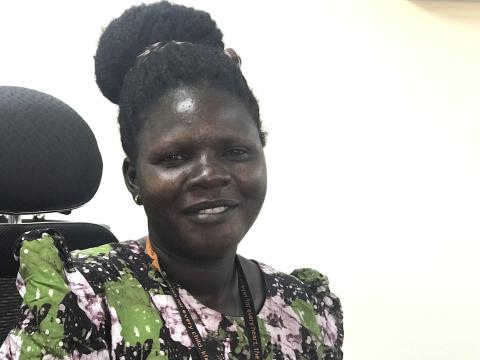
“I was barely 17 years old when the conflict broke out and the fighting intensified in nearby communities in South Sudan’s Yei State. My mother decided for us to seek refuge in Uganda”, recalls Susan Osman. As they ran for their lives to the border, she saw looting and dead people along the way. She adds, “For days we hid in a cave until it was safe for us to continue walking to the border.”
Without enough food, they suffered from hunger but that became second to getting to safety. At the checkpoint, a border staff tried to insist that she be left behind. Susan’s aunt Margaret stood her ground and insisted all of them will not leave unless Susan was with them. The soldier relented seeing she was determined.
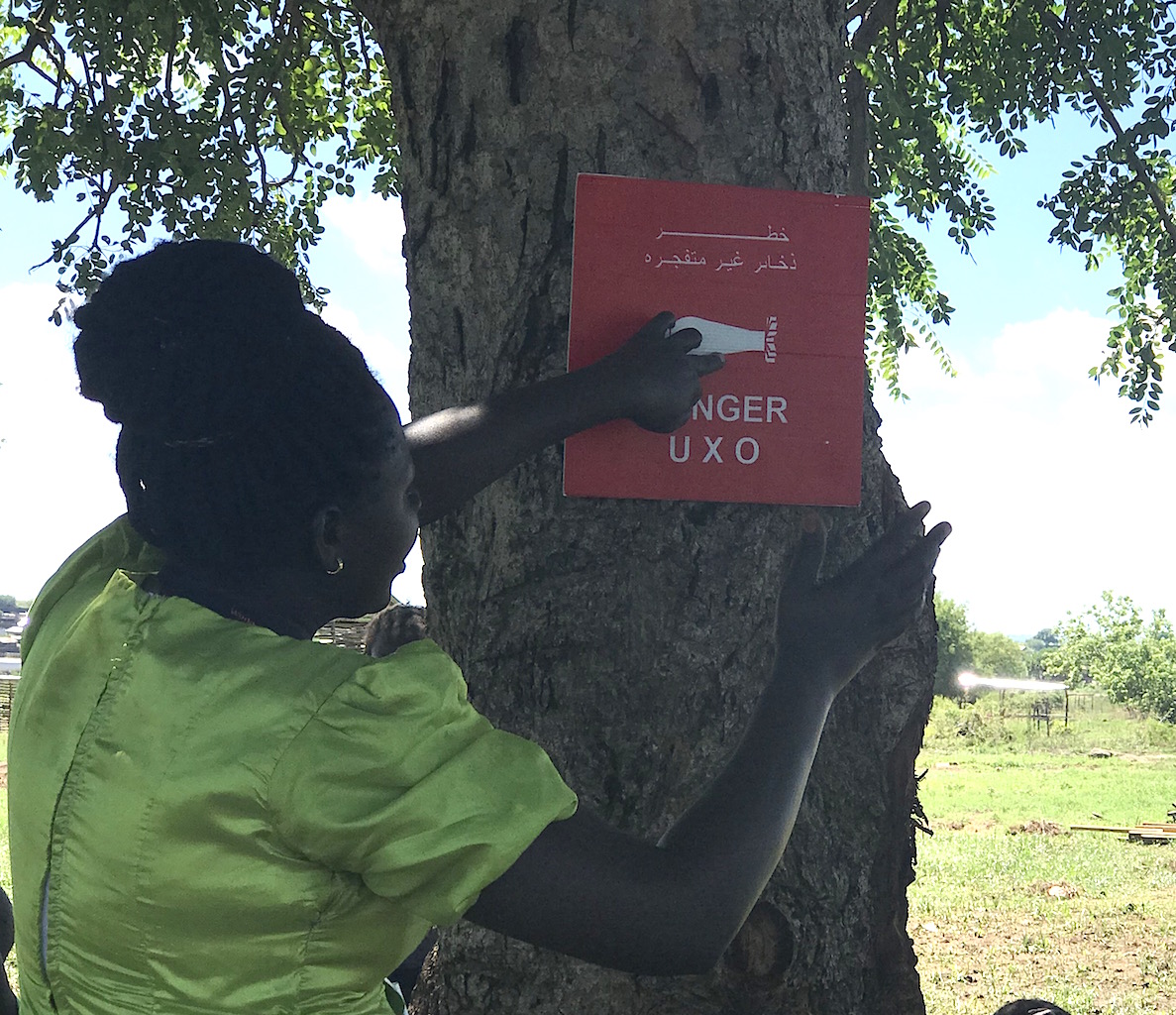
Susan never forgot that incident. Her Aunt Margaret’s action taught her that it is possible for a woman to stand up to what is not right. As she grew up, her aunt became her example for a strong South Sudanese woman.
They ended up in one of the refugee settlements in Koboko District in Uganda. Moving from conflict zone to a settlement crowded with refugees like them did not give the family any relief except the thought that they were finally safe.
Susan remembers, “The situation in the camp was difficult. I saw people suffering and dying of cholera and other diseases. Food assistance was not enough.”
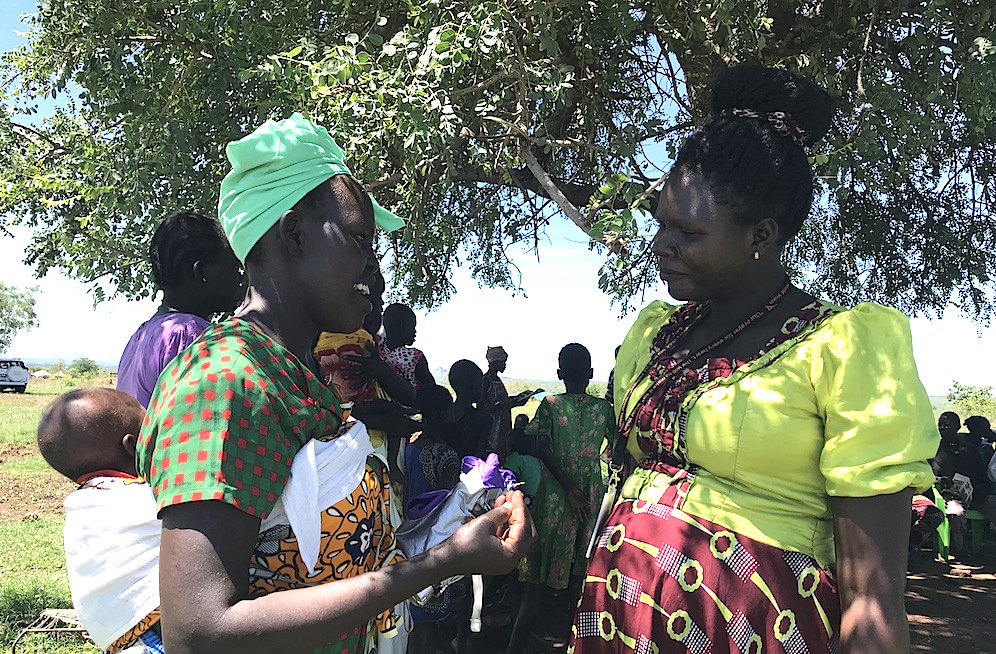
But she saw something positive in the dire circumstance around her. “I was happy because education was free and I can go to school. I went to Supiri Primary School even as we struggled with hunger”, she adds.
Her mother Merry Gire, hardworking and very resourceful, cultivated a garden for family food and sold fish around the camp to earn income for their basic needs. “We were lucky to live close to the riverside and my mother did business buying and selling fish”, Susan says. She studied very hard knowing her future depended on it.
When UNHCR established a secondary school in Arua District Susan was granted a scholarship by the UN agency and did not mind walking for miles with other students to be able to move up to the senior level. Windle Trust International supported her with her school needs. In 2006, her family was repatriated back in South Sudan.
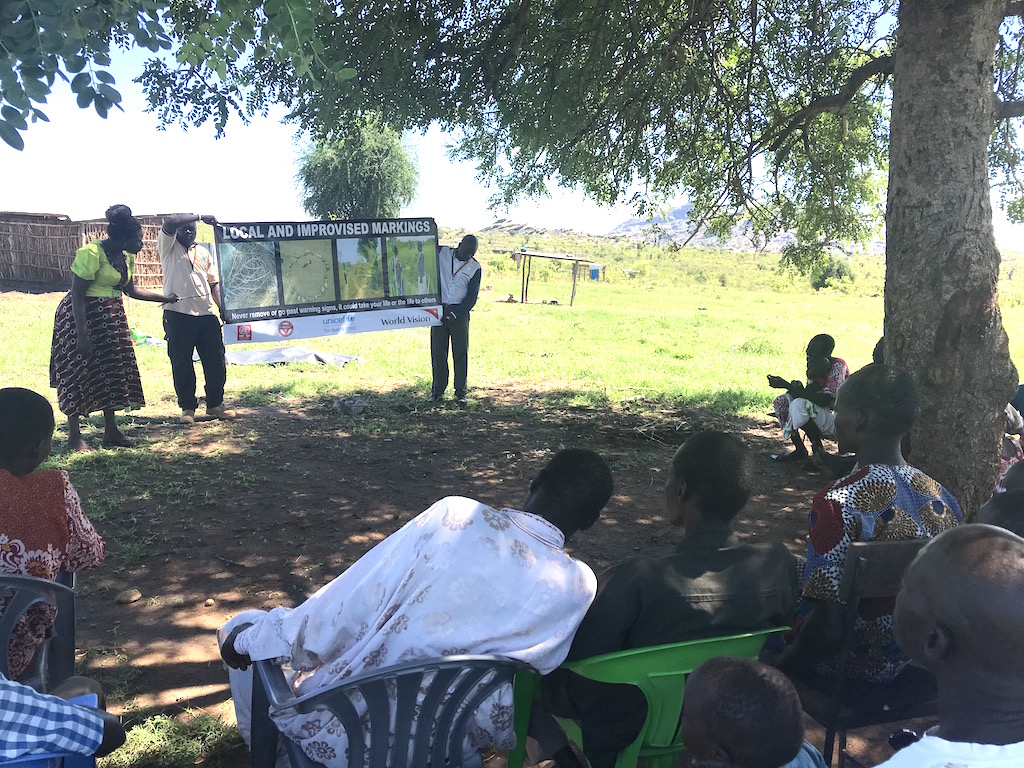
“Life was even more difficult in Yei State when we went back to South Sudan. We have already lost our house after it was burned down by the militants during the conflict and we were starting over. I was 22 years old then, so I ventured on my own to Juba, the capital city, to look for a job to support myself and study”, Susan says.
Susan did a lot of volunteer work with humanitarian organizations until she did de-mining work. She joined Juba University and enrolled for a Bachelor’s Degree in Natural Resources and Environmental Studies. She says, “I decided I will not go anywhere outside of the country but stay and do my share for my fellowmen.”
When she found out children were getting maimed and injured because of land mines and unexploded ordnances (UXOs), it strengthened her resolve and focused on learning more about the program and what she can contribute. “My volunteer work took me to the schools keeping the students aware of the dangers of UXOs”, Susan explains. Susan’s humanitarian commitment brought her to World Vision in 2018 as mines risk educator.
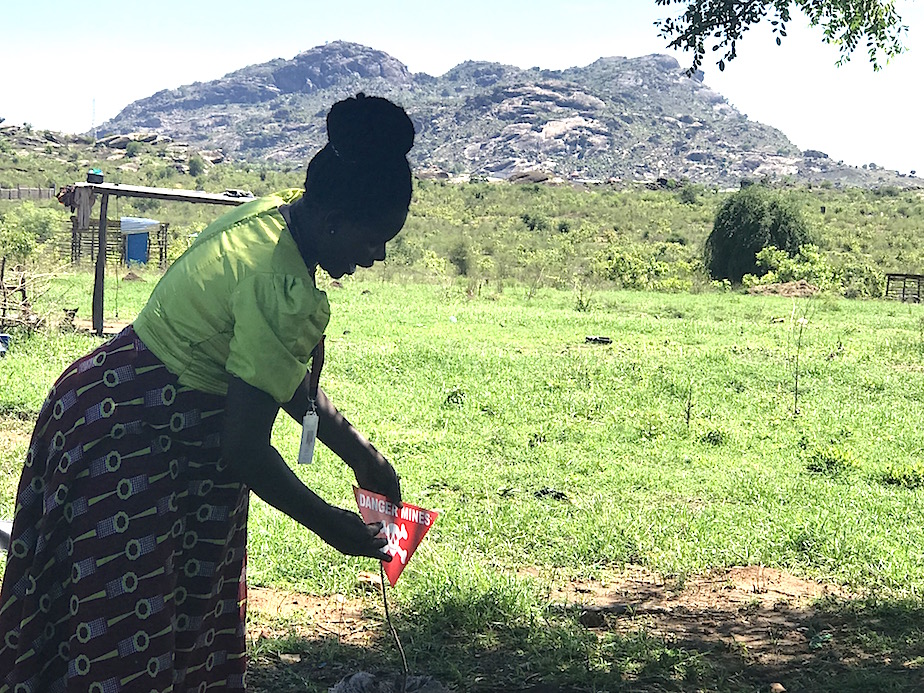
“The incidents I saw when I was a young girl still stayed in my mind. I witnessed the death of a woman when she tried to gather white ants for food from an ant hill and hit a UXO while they were digging. She died instantly and seriously injured her sister. While on the run during the fighting, a man stepped on a land mind and lost his legs”, Susan recalls and said these incidents prompted her to dedicate her life to sharing about the dangers of UXO.
Asked if she is ever scared of her job, Susan promptly responds, “I am not scared. I learn as much as possible about keeping myself and others while at work. I closely observe safety measures. I always think that a lot of lives are dependent on how effectively I do my work and that children can lose limbs and their lives if their parents are not educated about the risks.”
Looking back, Susan believes she made the right decision to go back to South Sudan and contribute what she can to her people. “I try to become an example to other women to find work and not depend for support from others. Education is very important as well as treating people well, especially in the communities”, she concludes.
World Vision’s mine risk education in South Sudan has so far reached out to over 20,000 people but the campaign for awareness and education needs to continue for the country’s 12 million population.